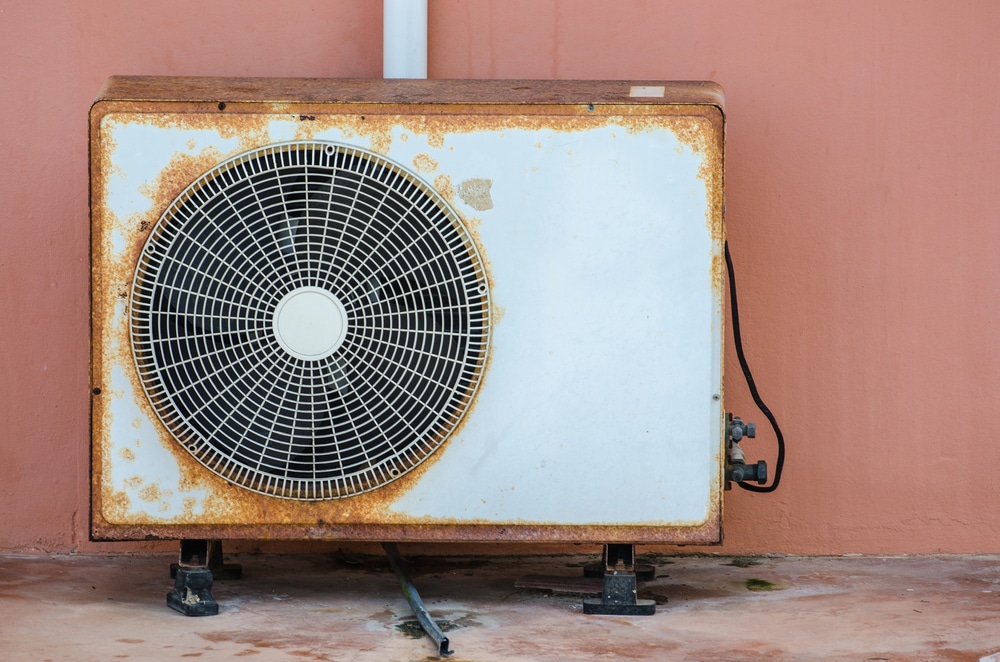
“Buying a new air conditioner? Maaaaaaate…a guy up the road has got a used air conditioner for sale. It’s a bewdy, as good as gold, almost brand new, works a treat, and is dirt cheap. Waste your hard-earned money on a new one… whywouldya???”
If you ever hear a conversation like this, run away.
Fast.
No matter what anyone tells you, there is never a good time to buy a used air conditioner.
Even if it were a top brand air conditioner such as Mitsubishi Heavy Industries (MHI), there is no chance that it will work as efficiently as a brand new one.
The only thing a used air conditioner will have going for it is the price…and even that can be false economy when you consider maintenance costs, potential repairs and overall running costs.
The first question you have to ask yourself is:
If it’s so good and works so well, why aren’t they keeping it for themselves?
Does the used air conditioner really function like it should, or are there some defects or operational issues with it?
If it’s still attached to the wall at least you can test it, but who’s to say that some component won’t be damaged whilst it is being dismantled?Or in transit.
Are you competent enough to even know what to look for, from either a mechanical, electrical or refrigeration perspective?
All quality air conditioners come complete with a comprehensive warranty.
The MHI Warranty (S series and FD series models) for example covers the air conditioner for 5 years for Parts, Labour and Compressor.
Naturally conditions apply, such as the equipment must be installed in accordance the manufacturer’s instructions, and – here’s the kicker – the warranty is only available to the original installation site.
So if you buy a used air conditioner, you may end up with little or no protection from the manufacturer…even if something is faulty or broken.
And if it does break, what are you left with – an expensive white shelf for displaying family photos?
Why take that risk? As the Romans used to say when they bought second hand air conditioners: caveat emptor (“Let the buyer beware”.)
The trouble with buying a used split system air conditioner (don’t even THINK about a used ducted air conditioning system!) is that it could be a case of “penny wise, pound foolish”.
Sure, you might save a couple of hundred when you buy it, but what about the long-term costs?
For example, how long will it be before it breaks down and needs repairing; bearing in mind that parts and labour don’t come cheap.
And if it isn’t running properly, you’ll throw a lot of money away on power costs compared with a new, super-efficient air conditioner.
Plus, you may have to invest in ear protection, because second hand units are notoriously noisy.
Then of course, there’s the issue of whether the used air conditioner is even suitable for the room you have in mind.
If it’s too small to cool and/or heat the space, it will run at a higher output thus chewing up more power and shortening its lifespan even further.
There are all sorts of problems that can arise when performing an ‘air con transplant’ – just ask any air conditioning technician who has done one.
Hoses are too long or too short. Connectors don’t fit. And other parts of the unit may have to be “adapted” (read “butchered”) to suit.
Woe betide you if the installer decides to take any shortcuts, or compromises on safety.
Even a professional technician may incur additional costs to install a used air conditioner.
No doubt they will pass them on to you, which may further erode some of the savings you made on the purchase price.
The safety of your family and pets should be top of mind if you are considering buying a used air conditioner.
Not just in term of electrical safety – although electrical issues are a primary concern – but who knows what pathogens, bacteria, mould spores and other nasties were in the air at its previous location.
Again, it raises the question…if there is nothing wrong with the air conditioner, why are the vendors getting rid of it?
No, we strongly recommend steering well clear of second hand air conditioners.
If it’s a matter of cost, we’re sure we can help you out.
For more information and advice on home air conditioning, simply click here to contact us.